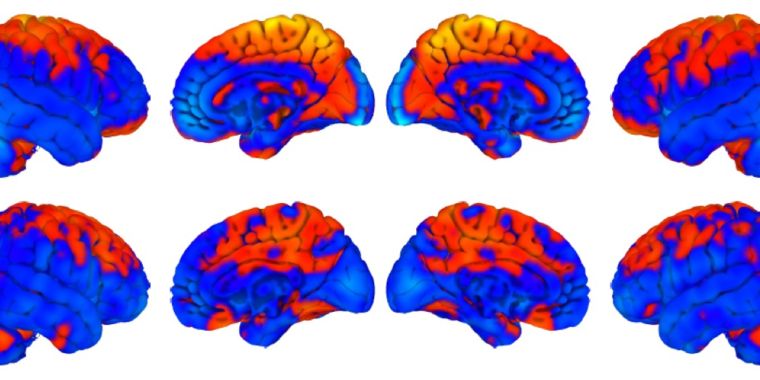
Led by the former head of DARPA and Google ATAP, Regina Dugan, Building 8 has created a way to talk to your computer with your brain.

A new study could change scientists' understanding of how the brain works - and could lead to new approaches for treating neurological disorders and for developing computers that 'think' more like humans.

A team of doctors has documented a case in which a terminal patient removed from life support continued to experience brain wave activity for approximately 10 minutes after they had been pronounced clinically dead. The team acknowledge that they have no explanation for what they observed.

A new study provides some of the first data on the changes in brain structure during spaceflight. Scientists found decreases in some gray matter areas and increases in gray matter volume for regions of the brain that control leg movement.
A clinical research publication led by Stanford University investigators has demonstrated that a brain-to-computer hookup can enable people with paralysis to type via direct brain control at the highest speeds and accuracy levels reported to date.

Researchers have confirmed that becoming a parent brings about more than just the obvious offspring - it also rewires the parents' brain.

The system, a portable brain-machine interface, translates brain activity into simple yes or no answers to questions with around 70 percent accuracy.

The genes that predispose people to attain higher levels of education have been in decline over the past 80 years, and researchers are suggesting that they’re now under negative selection, which could have a big impact on our species in the coming centuries.

Older people who followed a Mediterranean diet retained more brain volume over a three-year period than those who did not follow the diet as closely, new research shows.

As lifespans continue to get longer it's becoming more important than ever to understand how humanity will maintain its mental capabilities in old age.

Runners' brains appear to have greater functional connectivity than non-runners' brains, according to new research.

A brain-controlled glove is letting people with paraplegia perform everyday tasks like eating, drinking and signing their name.

A paralysed woman, who is "almost completely locked in," has become the first person to use a fully implanted brain-computer interface at home in day-to-day life without constant doctor supervision.

Scientists have pinpointed a network of three specific regions in the brain that appear to be crucial to consciousness.

Researchers have now used direct stimulation of the human brain surface to provide this basic sensory feedback through artificial electrical signals, enabling a person to control movement while performing a simple task: opening and closing his hand.